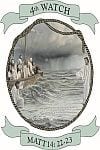[This post was originally written by Allen Wyatt on his blog Ruminatio. It is reposted here with his permission.]
I enjoyed general conference earlier this month, and in fact wrote a good deal about it and the goings-on by other groups at conference time. One of those groups is Ordain Women, which sponsored an event designed to heighten awareness of those who would like to see women be ordained to the priesthood.






